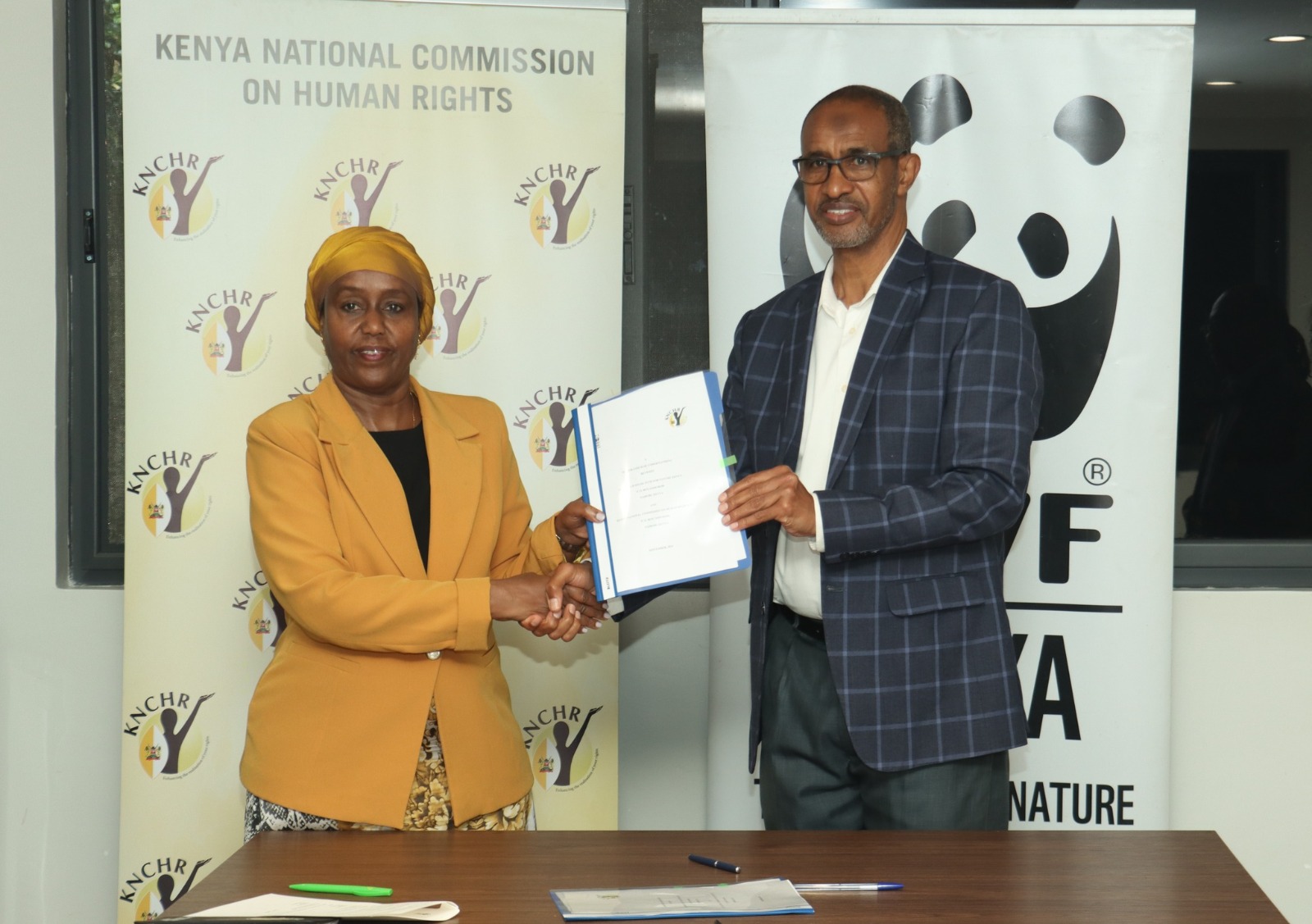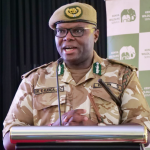The Kenya National Commission on Human Rights (KNCHR) and the World Wide Fund for Nature-Kenya (WWF-Kenya) have signed a five-year Memorandum of Understanding (MoU) to promote a human rights-based approach to environmental conservation.
This collaboration underscores the crucial connection between natural resource governance and the rights of communities that rely on healthy ecosystems for their livelihoods and well-being.
The MoU cements a joint commitment to integrating human rights principles into the governance and management of Kenya’s natural resources.
Through this partnership, the two organizations will focus on research, capacity building, community outreach, alternative dispute resolution, and public awareness and education.
Speaking at the signing ceremony at WWF-Kenya’s Panda House Headquarters in Nairobi, WWF-Kenya CEO Mohamed Awer emphasized the importance of safeguarding both human rights and nature.
“Environmental conservation is about protecting the rights of people as much as it is about preserving the natural world that sustains our economy, livelihoods, and well-being. Our partnership with KNCHR reinforces our commitment to a human rights-based approach to conservation,” Awer said.
“At WWF-Kenya, we work closely with communities in some of Kenya’s most unique and fragile ecosystems, supporting both local livelihoods and protected areas. By placing the Environmental and Social Safeguards Framework at the core of all our interventions, we aim to create a future with healthy ecosystems and thriving communities.”
KNCHR Commissioner Hon. Sara Bonaya, representing the Commission at the ceremony, highlighted the need to address human rights concerns in conservation.
“Environmental rights are human rights. We have received numerous reports of human rights violations in the conservation sector,” she said.
“Developing tools that address the intersection of human rights and conservation is a crucial step forward. Today marks a new beginning as we strengthen our capacities to ensure human rights for all in our conservation efforts.”
This pioneering partnership aims to embed human rights considerations into WWF-Kenya’s conservation efforts across four key landscapes: Southern Kenya, Kenya Rift Lakes, Coastal Kenya, and Northern Kenya.
It will also support national initiatives on climate change, policy, research, innovation, safeguards, and sustainable finance, setting a strong precedent for rights-focused conservation in Kenya.





